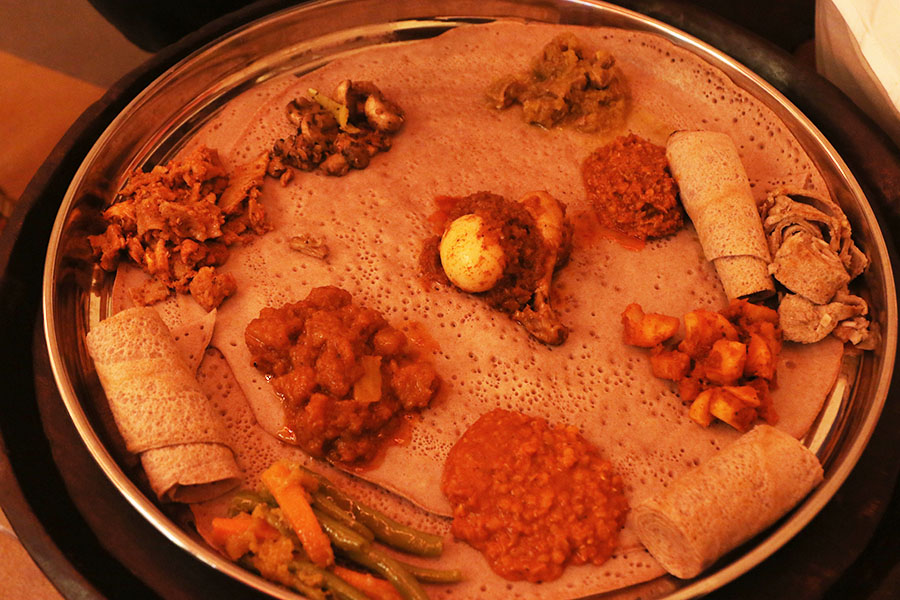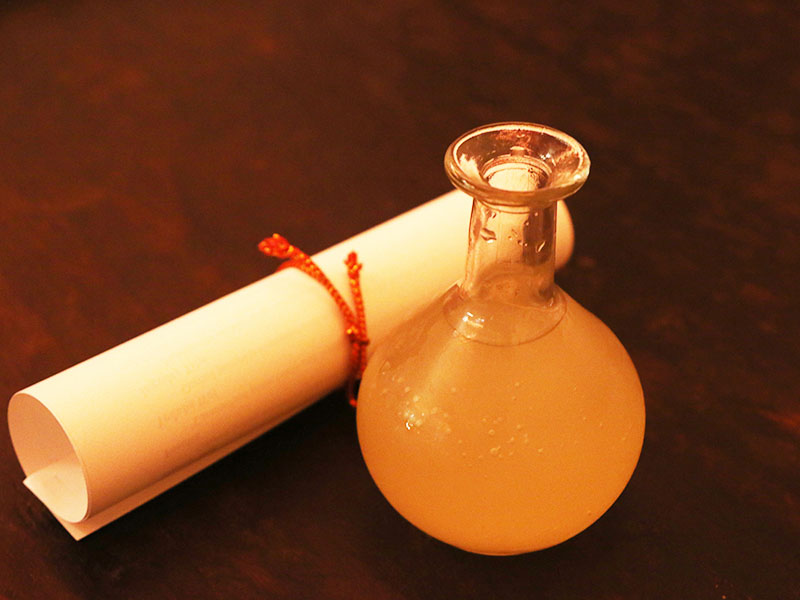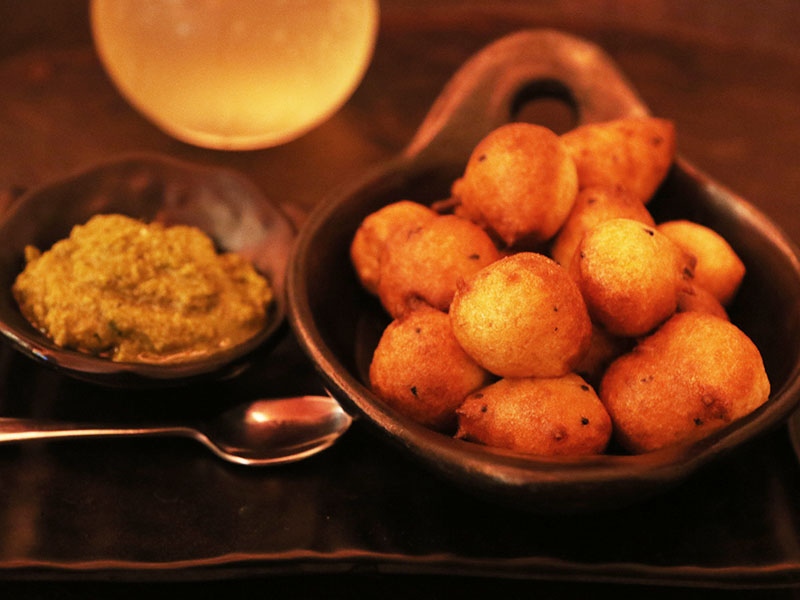Chennai
A Unique Kind Food Experience Awaits You At Abyssinian In Alwarpet
Indians are becoming more and more experimental with their food choices and we’re also far more adventurous than people will believe. So it shouldn’t surprise anyone that an Ethiopian restaurant has opened in Chennai, which is also the first of its kind in India. Brought to food lovers by the same people that gave the city Meena Tai’s and Batlivala & Khanabhoy, Abyssinian is a one of a kind food experience that cannot be missed. Think of it as something you must cross off your bucket list.
The restaurant opened on October 28th by the Ethiopian Ambassador and has seen lots of visitors since day one. We got a chance to visit the restaurant on a quiet afternoon and meet with Kathiravan Govindaraj, Manager of Operations, to understand why this was a cuisine that was chosen, what makes Ethiopian food so special and get a better understanding of how much work went into making this restaurant what it is.

Why Ethiopian food and why Chennai?
We’ve been in this industry for a couple of years and we’ve always wanted to set up restaurants that are underrated or not popular. We have a South Indian cuisine restaurant in Pune (Savya Rasa), we’ve launched a Maharashtrian (Meena Tai’s) and a Parsi cuisine (Batlivala & Khanabhoy) in Chennai. And we thought Abyssinian would be the perfect one, because we share a lot of similarities in culture, spice, way the food is eaten. They believe that eating in the same plate is about eating together, to build a bond and a relationship. And we are happy and proud that we are the first to do this in India.
Our operations base is based out of Chennai and we have space in this building, along with the two other restaurants. Restaurants have a standard in general, where one building you will see only one restaurant and we wanted to do three or four in the same building, to offer multiple choices for the market. And it’s a foreign cuisine and we don’t know how people will take it. But we are confident about this, so we want to start in a small level and see how we can take it forward.
Did you get all the furniture from Ethiopia?
Every single piece you find in this room, other than the bricks and the paint, has all come from Ethiopia. The furniture, the stools, the chairs, the artefacts in and around the restaurant are all purchased from Ethiopia. That was one of the reasons why it was delayed, because the entire shipment came from Ethiopia, and we had invested quite a good amount of money bringing down furniture for three-four restaurants.
What is special about the way the food is served?
The stools, chairs and tables are lower. They also eat with their hands and feed each other. We don’t give different plates, we place one big plate in the middle with a bed of injera and all the food, and the curries are served on top of it. The injera is then broken into pieces and you use that to pick up the curries and eat. No cutlery is provided, unless asked for.
Do you have a chef from Ethiopia?
We had a chef, who was also a historian and professor, who came down to India. She spent about a month with the chefs in our test kitchen in Coimbatore. And then she was in the restaurant for a couple of weeks, and she trained all our staff on making the dishes. We’re taking forward from here and she’ll return when she has a break to help us set up the rest of the restaurants and do the quality checks.
Does someone explain all these important things to the guests?
Yes. When a guest calls to make the reservation, we give them a little brief about our restaurant. And when they are at the table, we give them a tour of what is an Ethiopian restaurant and how the food is eaten and appreciated. You’re given a menu with a brief and a menu composition to know how the food is eaten and what it’s served with and how it complements the other dishes. This takes about five minutes for the guest to understand the cuisine better, to get the full experience.
Help us understand the menu and the food a little better.
We have choices for the customer, you can choose vegetarian or non-vegetarian. And based on your choice, you get a plate with six dishes. And all of that is eaten with injera. Injera is a flat sourdough bread which is, for us to understand easily, between an appam and a dosa. The whole meal is called a Messob, which starts with a soup, followed by the large plate with the injera and the curries. Then there’s dessert and finally the meal ends with coffee.
There is a national drink called Tej, which is a honey wine that is made and drunk during a celebration or a festival. Since we cannot serve alcohol in the restaurant in Chennai, we’ve made a non-alcoholic version. It’s got three ingredients – honey, water and yeast – and the process is stopped just before the fermentation turns the drink alcoholic.
They also serve Mandazi, which is made of fermented dough that is deep fried and served with chutney. We get most of are spices shipped from Ethiopia so that we can maintain the authenticity of the cuisine. It’s very similar to our food because they use cardamom, cinnamon, ginger, garlic amongst others, but the flavour profiles change because of the climate and other factors.
Their main dishes have two kinds – Wot or Alicha. Both are stews made of onions, but what makes them difference is that a Wot has berbere while the Alicha is without the spiciness and has a little turmeric.
What is special about Berbere?
Traditionally, there are two important spice mixes that describes the entire Ethiopian cuisine – Mitmita and Berbere. Both of them have similar ingredients but the main difference is that Berbere has a chilli that is less spicy, but the Mitmita has a spicier chilli.
The restaurant has been open for less than a month, but it’s already drawing in the crowds. They have a small space in the same building as Batlivala & Khanabhoy and Meena Tai’s. It’s important to make a reservation as they are only open during certain times for lunch and dinner.
Abyssinian is at 40, Maharaja Surya Rao Rd, Dutch Village, Venus Colony, Teynampet. You can contact the restaurant the restaurant at 082205 55449 for reservations.






















